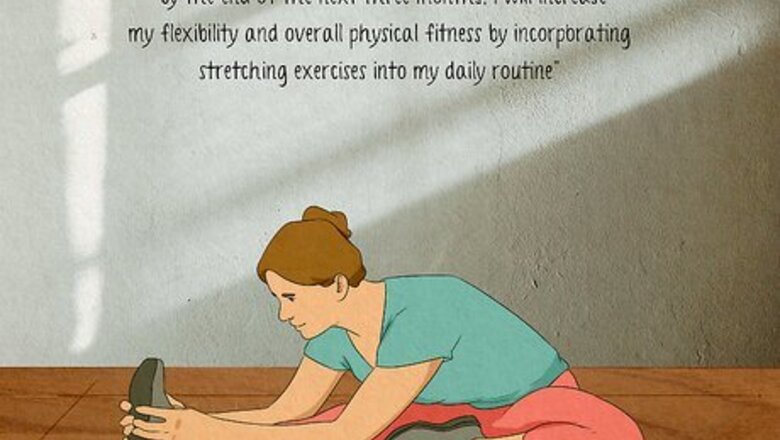
views
12 Ways to Live Your Best Life
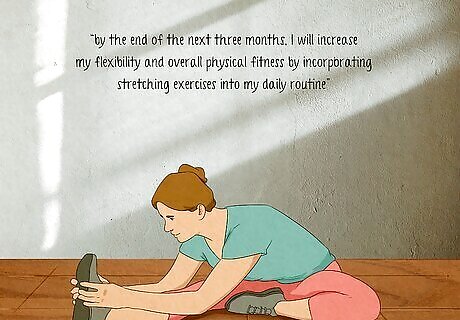
Set realistic and measurable goals to achieve what you want in life. When setting SMART goals, they must be realistic, measurable, and true to the vision of the life you want. Start small by making daily to-do lists. Complete five days of subsequent to-do lists before setting a year-long goal or writing a five-year plan. To set a long-term goal, map out your timeline and identify “some milestones that you want to reach in a year,” suggests life coach Tracey Rogers. As Rogers continues to advise, it’s common to expect that “a goal should be reached overnight. Change is hard, so we want it to happen as quickly as possible.” When her clients face that feeling of “discouragement because something isn’t happening fast enough…[or] easily enough,” Rogers encourages them to keep doing the work and remember that goals take time to accomplish. Once you’ve decided what you want in life, you must choose to pursue it—even if it comes with challenges. Don’t just sit by and wait for things to happen to you, because they probably never will!
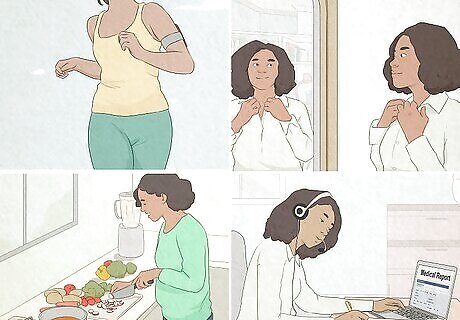
Create an effective daily routine. Start by deciding what your ultimate goal is in creating a daily routine, then work backward. Some common goals that life coach Michelle Shahbayzan sees in her practice include “personal hygiene, getting up and getting motivated, [and] working from home or getting more inspired for working.” Whatever your goal is, states Shahbazyan, use that as the starting point, then “figure out the basic steps to get to that place.” “Sometimes that involves very small things like setting an alarm and waking up at a particular time five days a week,” explains Shahbazyan, “or the traditional get up, make your bed, get your day started doing some kind of activity that pushes you towards that goal.” If you stick to your new daily routine, “it will become so much easier to accomplish bigger goals because your brain learns that these habits are already very quick,” asserts Shahbazyan. Make a goal of sticking to your new habits for at least 30 days, which, according to life coach Kamal Ravikant, “is enough time to create transformation…[and] see a difference, whether in your body or your mind.”

Incorporate journaling into your daily routine. Set aside 10-15 minutes per day for journal writing, whether on your subway commute, over breakfast, or right before bed. Start with a list of journal prompts for self-discovery, or create a bucket list of all the things you want to do in the next month or year. Psychophysiology expert Nicolette Tura endorses journaling “as a way to get more space in your mind.” Elaborating on the benefits of journaling, Tura explains how “we believe our thoughts and, when you believe your thoughts, you start to act that way.” “If you journal,” continues Tura, “you can get space and witness your thoughts,” which should then affect your daily behaviors and beliefs about your abilities. Journaling has also been proven as a tool to help manage anxiety, reduce stress, and cope with depression.

Use mindfulness techniques in your daily life. Mindfulness is the ability to observe your current feelings and experiences without judging them, and it’s been shown to have hugely positive effects on emotional well-being and stability. Start small by incorporating 1-minute mindfulness techniques into your daily routine: When you first wake up, arrange your body into a comfortable position and stretch. Scan your body mentally and consider how each part of your body feels while slowly inhaling and exhaling for one minute. When seated, straighten your posture and place your feet flat on the ground. Set a 1-minute timer, place your hands comfortably on your lap, and close your eyes. Focus on your breathing until the timer goes off, then open your eyes gradually. When you’re walking somewhere, pay attention to how many steps you take during each inhale and exhale. Don’t force your breath or your walking pace. Match your steps with your breath so that you take an equal amount of steps with each inhale or exhale. When you pass through a doorway, pause momentarily and take one breath. Be aware of the differences you may feel in the new space and what you’re leaving behind in the previous one. If you have more time, try a beginner meditation class or do yoga by following along with a free Youtube video.
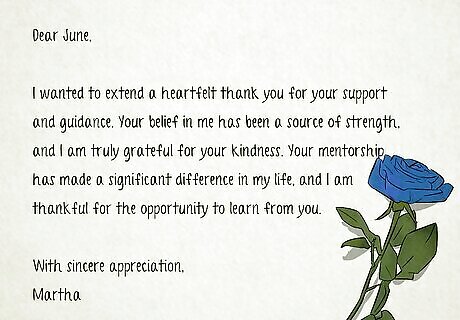
Appreciate what you have to be grateful for. Start practicing gratitude in small ways, like thinking of one thing you’re grateful for while brushing your teeth or packing your lunch each day. Later, try writing a list every day with five things you’re grateful for that day. You may want to express gratitude externally by writing a letter of gratitude to someone in your life—gratitude letters have been shown to promote happiness and life satisfaction. Focus on the little things: no matter what your situation in life is, you have something to be grateful for. If you constantly feel like you’re lacking certain things, take some time to self-reflect on what you do have so that you can feel happier day to day. If you’re reading this, you have access to the internet and electricity, luxuries much of the world doesn't have, and the free time to research topics to improve your life. These are things to be grateful for.

Take care of your physical and mental health. Practicing self-care and looking after your mind and body are essential to feeling good and living your best life. Stay active and move your body in ways that feel good to you—this doesn’t mean you have to spend hours in the gym if that’s not your thing! Try dance classes, joining a sports team, going to a trampoline park, or taking long walks in nature. Eat a balanced diet and don’t restrict yourself from eating foods you enjoy in moderation. Drink lots of water—adult men should drink about 3 liters of liquids every day, and adult women should drink about 2.2 liters every day. Empowerment expert Nicolette Tura defines self-care as “giving yourself sleep, food, and rest…Take the day off. Go do something that makes you feel good.” If you feel like you’re really struggling with your mental health, ask for help from loved ones or a mental health professional. If you’re not sure where to start, call the National Mental Health Helpline at 1-800-662-HELP (4357).

Spend your time on meaningful activities and people. Dedicate your free time to hobbies and activities you love. Pick up that guitar you haven’t played in months, or finally get around to making a recipe from the cookbook you were so excited to receive for your last birthday. Invest your energy in meaningful relationships with people that add to your life and make you feel uplifted and happy. Are there any activities you keep doing that seem to drain your energy? Are there any friends you spend time with that always leave you feeling bad about yourself? Sometimes, living your best life means letting go of things (and people) that aren’t meaningful to you anymore. While it’s extremely difficult to let go of and move on from friends and activities that used to mean a lot to you, it’s sometimes the only way to [[Improve Your Life|create a better life[[ for yourself. Instead, dedicate your time finding new hobbies you’re excited about, making friends that align with your values and passions, and nurturing the existing relationships you have with loved ones.

Confront your inner critic. Like everyone, you may have a little voice in your head that makes you think you’re not good enough or are incapable of change—this isn’t true. This voice of “self-criticism is an external thing that has been ingrained into your way of thinking,” explains marriage and family therapist Michelle Shahbazyan. Quiet your inner critic by directly speaking to it and reminding it that what it’s saying isn’t the truth—they’re just thoughts, and they’re not based in reality. Whenever a negative thought about yourself pops into your head, reframe it as something positive: “I’m stupid” becomes “I’m skilled in certain areas that others aren’t as strong in.” You can also write down any negative or pessimistic thoughts to make them less overwhelming, recommends Shahbazyan. Reframe or “make a tangible, implementable change” to address each item on your list, advises Shabazyan, “and when you do that and can get through half your list or sometimes 100% of your list, you see…[that] there’s hope.”

Focus on loving yourself instead of comparing yourself to others. Jealousy is a normal and healthy feeling from time to time, but you don’t want it to take over your life. Focus on what you have instead of what others have, and channel your envy into a goal you’ll work toward achieving. Ultimately, however, you want to have enough self-love that you don’t need to compare yourself to others to motivate yourself. Loving yourself is easier said than done, and many people struggle their whole lives with developing self-esteem. As described by Kamal Ravikant, bestselling author of Love Yourself Like Your Life Depends On It, “loving yourself is a fundamentally inner thing where you actually walk around feeling love for yourself and...for this amazing human being that you are.” To practice self-love in your daily life, Ravikant suggests finding at least one time each day to take 10 intentional breaths. On each inhale, “say ‘I love myself’ and bring it in, feel it, then let out whatever’s inside.” “Do that when you wake up, do that when you go to sleep, do that throughout the day,” encourages Ravikant.

Challenge yourself to reach your full potential. Step outside of your comfort zone and put your best effort into everything you do. Even if you’re not excited about a task or project at work, complete it to the best of your abilities. In your free time, take a class to learn something new or use a brain training app like Lumosity or Brain HQ. Challenge yourself professionally by taking on a leadership role at work or finding a mentor. Learn new skills when you’re able, but spend an equal amount of time cultivating and building on the skills you already have. However, it’s also important to know your limitations. Be careful not to overburden yourself and end up dealing with burnout. Sometimes, being persistent at a specific task is not the right choice because your skills might be better used elsewhere. Consider what you’re good at and try to cater to your skill set.

Live in the moment and go with the flow. There’s a lot in life that is out of your control. Part of living your best life also means taking changes as they come and adapting to unforeseen situations and circumstances. Try not to worry so much about what’s coming and reassure yourself that the future version of yourself will be equipped to handle it. As life coach Nicolette Tura explains, “It’s human to have a situation you don’t like and to have an initial [emotional] reaction, but how long do you go down that path?” Letting go of what you can’t control, Tura continues, allows you to “be more zen…and take back your power to create and influence the situation.” When faced with difficult moments, Tura advises that you ask yourself, “What can I accept? What can I change?” By answering these two questions, you can address the areas that are under your control and let go of the ones that aren't.

Reach out to a counselor or life coach. Talking things through with a counselor or seeking guidance from a life coach can lower your stress and anxiety levels, as well as give you more confidence in your decisions. These professionals are trained to help you be more self-aware, which allows you to be more present and mindful in your life. Certified life coach Tracey Rogers has observed that many people want to make life changes but simply don’t know where to begin. “A life coach can be really beneficial,” Rogers asserts, “because you’ll have an outside objective perspective that can keep you focused and…someone who is literally on your team.”
Figuring Out What Your Best Life Looks Like

Consider what your life’s purpose and passions are. Maybe you have an easy answer: you’ve been passionate about medicine since birth or have a natural knack for learning new languages. However, if you aren’t sure what your truest passion or purpose is, don’t worry—empowerment expert Nicolette Tura says that your life’s purpose should always evolve. To work toward finding that purpose, Tura recommends always “being curious…be open, go on adventures, meditate, do yoga, read books, be around people that inspire you.” By being open-minded to new possibilities, explains Tura, your life path will open itself up to you. Life coaches Tracey Rogers and Michelle Shabazyan agree with Tura’s advice, with Rogers affirming that you must “give yourself permission to be curious and follow through with where your curiosity leads.” Shahbazyan also emphasizes embracing curiosity while adding that you must let go of other peoples' opinions about your passions or purpose: “Be real with [your]self and don’t be scared to explore…whatever it is that would make you happy, without any worry of what other people think.”

Reflect on your daily habits and actions. Spend one week observing your everyday habits and routines, and write down your observations. What are you spending the most time on? How are you responding to stressful or high-pressure situations? Which activities are draining your energy, and which make you feel happy and fulfilled? What emotions are triggering your negative habits? After observing your behaviors for a week, consider what changes you want to make. Start intentionally doing more of the activities that make you happy, and start reducing time spent on draining habits. For example, maybe scrolling mindlessly through TikTok for 5 minutes helps you feel relaxed, but that 5 minutes turns into 60, leaving you feeling drained. Set a five-minute timer when you open the app, and hold yourself accountable. Alternatively, you can even set screen time limits for individual apps in your iPhone or iPad settings.
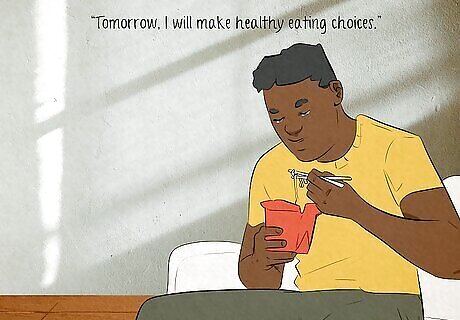
Set intentions that align with your improved lifestyle and habits. Decide what positive feelings you want to achieve in the next day, week, or month. Write down or state your intention aloud. Make sure your intentions are positive and begin with “I will” rather than “I won’t.” Keep your intentions simple at first: “I will be patient this week” or “Tomorrow, I will make healthy eating choices.” Your intentions can apply to certain situations, like saying, “I intend to go into my department meeting tomorrow feeling relaxed and willing to collaborate.” Setting an intention differs from setting an action-based goal—focus on the emotion and energy you’ll bring to your daily life rather than on an end result. Remove failure from the equation when it comes to your intentions. If you don’t achieve it, regroup and try again!

Visualize what your best life will look like. Choose a specific intention or outcome you want to work toward and consider how you’ll feel when you’ve accomplished it. Allow your mind to wander and fully visualize what that version of yourself will look like. Include sensory images using all 5 of your senses. Try to answer these questions: what will you look like? Who will you be surrounded by? What emotions will you feel? Visualize twice a day for a total of 10 minutes daily. It may also be helpful to create a vision board that you’ll see daily, or write your desired outcome on an index card and read it right when you wake up and before bed.

















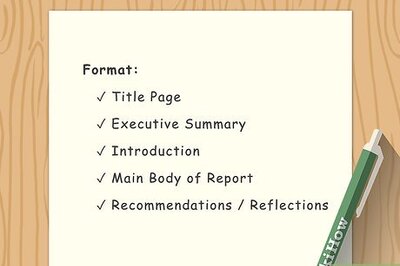
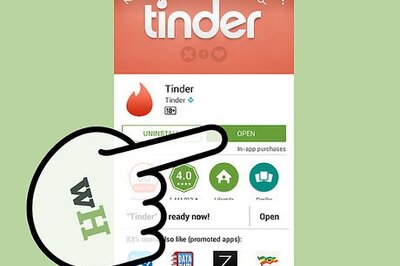

Comments
0 comment